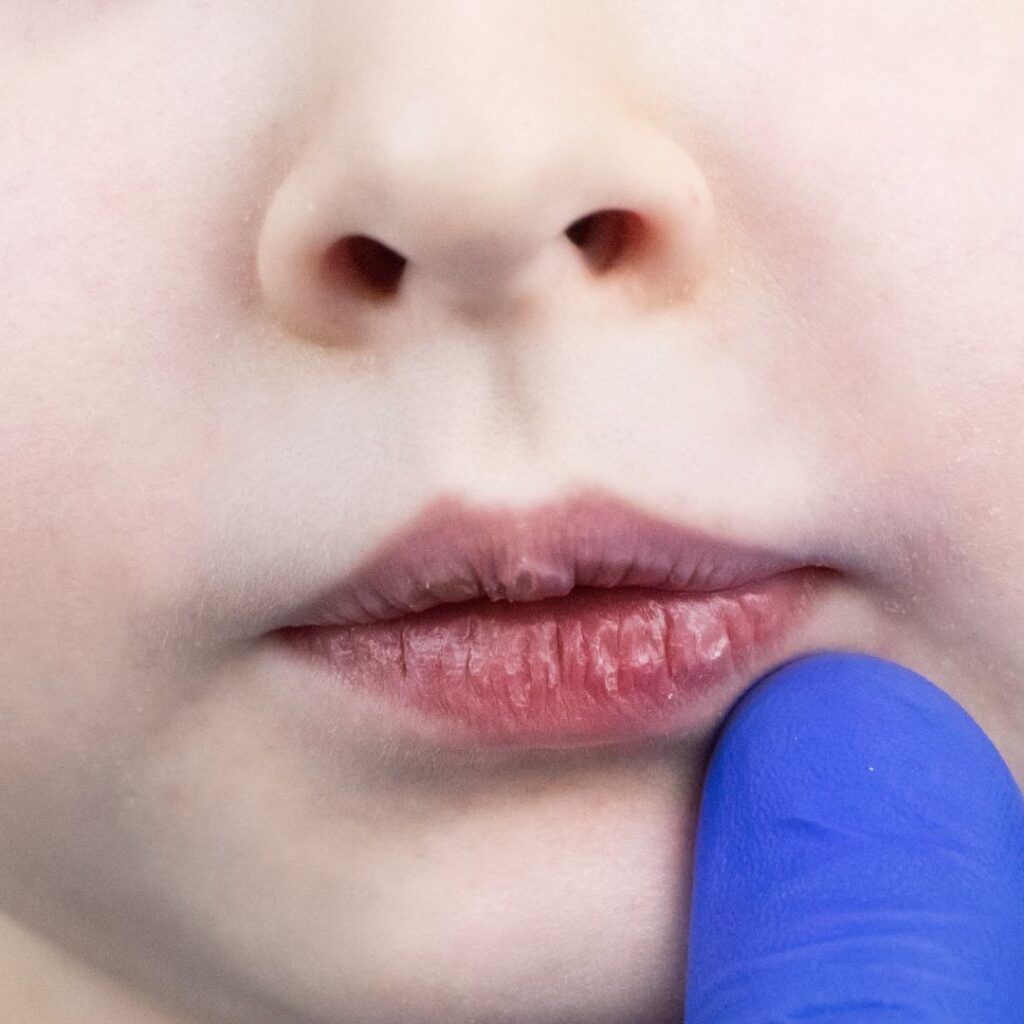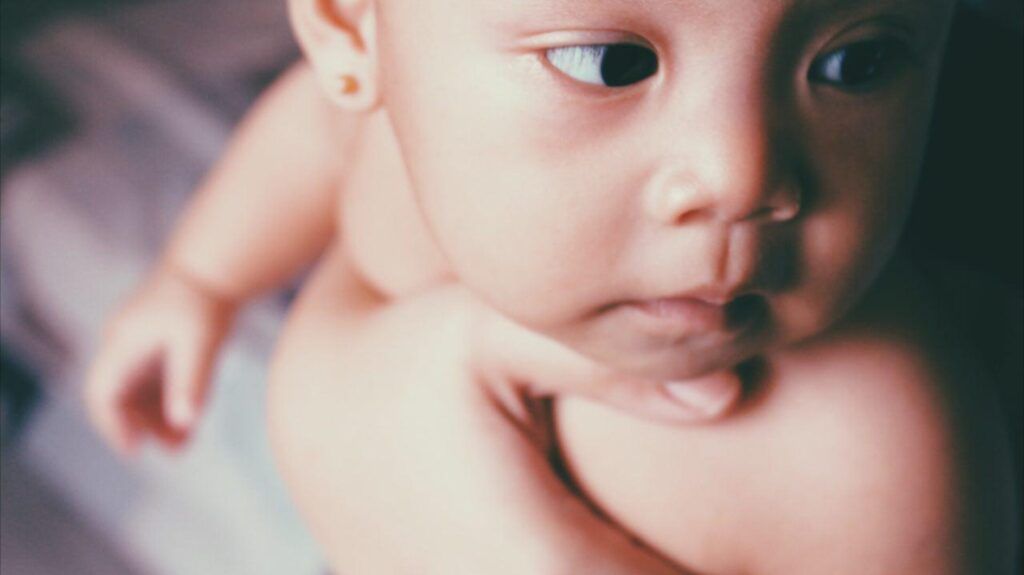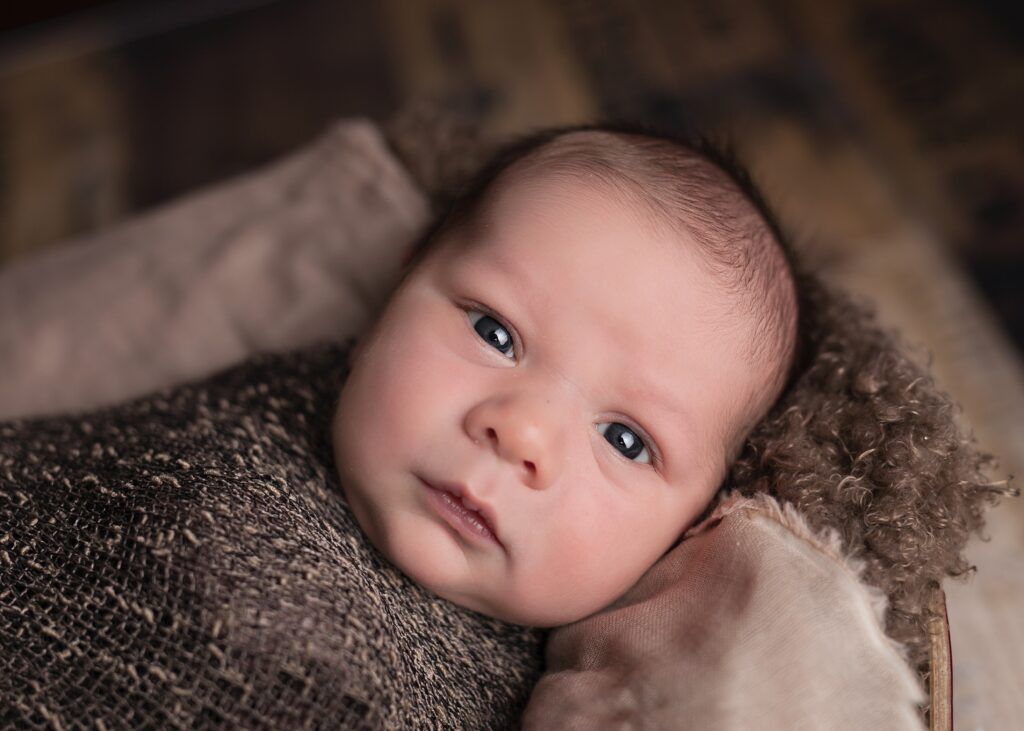As you enter into parenthood and brought your beautiful bundle of joy home from the hospital, you’re already obsessing over new environmental changes and making sure they’re eating, sleeping, and, most importantly, staying hydrated. However, you also notice that their little lips are looking a bit dry and chapped. Not to worry! In this article, I’ll share five easy tips to prevent and treat Newborn Chapped lips.
Contents
What are Chapped lips?

Chapped lips are a condition where the lips become dry, cracked, and sore. The outer layer of the skin on the lips may also peel or flaky. This can be a part by a part of numerous things including weather, dehydration, and certain medications.
Firstly, make sure you drink plenty of fluids throughout the day to stay hydrated. You can also use a lip balm to help protect your lips from the scorching sun and harsh external pollutants.
Secondly, if you already have chapped lips, there are a few things you can do to treat them. First, try using a gentle lip balm or ointment to moisturize the lips and help heal any cracks or soreness. You can also apply a compress using hot/warm water to the lips for a few minutes at a time to help soothe inflammation. But when the condition is severe, you may need to see a doctor for treatment.
What causes Chapped Lips?

There are several causes for the underlying issues. One of the most common causes is simply dry weather. When the air is dry, it can suck the moisture out of your lips, leaving them feeling dry and cracked. Another common cause of chapped lips is exposure to wind. Wind can also dry out your lips and make them more susceptible to cracking.
Eczema is one of the medical reasons for chapped lips. Allergies also play their part in chapped lips. If you think you might be allergic to something, stop using it and see if your symptoms improve. Finally, some medications can cause chapped lips as a side effect. If you think your medication might be to blame, talk to your doctor about switching to a different one.
There are a few things you can do to prevent chapped lips. First, make sure you drink plenty of water to stay hydrated. You can also apply a lip balm or Vaseline to help lock in moisture. Avoid licking your lips, as this can make them drier. Finally, try to stay out of the wind and cold as much as possible.
How to find out dehydration in newborns?

If your newborn’s lips are dry and they’re not producing enough wet diapers, they may be suffering from dehydration. Watch for other signs of dehydration as well, such as sunken eyes, a dry mouth, lethargy, and low energy levels. If you think your newborn chapped lips is worse, take them to the doctor right away.
How to prevent and treat newborn chapped lips
There are several things you can do to prevent your baby from getting chapped lips.
- First, make sure that your baby is well-hydrated. Give them plenty of fluids to drink, and make sure that they are getting enough breastmilk or formula.
- Second, protect your baby’s lips from the sun. Use a lip balm with SPF 30 or higher when you are outdoors with your baby.
- Third, avoid using harsh soaps or cleansers on your baby’s lips. Stick to gentle products that won’t strip away their natural moisture.
- Fourth, don’t let your baby lick their lips too much. This can dry out their lips and make them more susceptible to chapping.
- Fifth, use a humidifier at night. This will add moisture to the air and help to keep your lips from drying out.
If your baby does get chapped lips, there are several things you can do to treat them. First, apply a lip balm or ointment to their lips to help soothe and protect them.
Dr. Talbot’s Lanolin Lip & Cheek Balm for Baby
- Dr. Talbot’s Lanolin Lip and Cheek Balm is a safe and gentle way to moisturize your baby’s delicate skin. Made with lanolin and Citroganix, it softens and protects skin while providing long-lasting hydration.
- The light vanilla milk flavor is pleasant for children, and the balm can also be used on dry cuticles, elbows, and other areas that need relief from discomfort.
You can also give them frequent drinks of water or breastmilk to help keep their lips hydrated.
If the chapping is severe, you may need to see a doctor for treatment.
When to see a Doctor for chapped lips
If you notice that your baby’s lips are chapped, it’s important to seek medical attention. Chapped lips can be a sign of dehydration, which can be very dangerous for newborns. If you notice that your baby’s lips are dry, cracked, or bleeding, take them to the doctor right away.
There are some things you can do at home to help prevent and treat chapped lips in your baby. First, make sure that your baby is getting enough fluids. Breast milk or formula should be their main source of hydration. You can also give them small sips of water if they’re older than 6 months.
Make sure to keep your baby’s skin moisturized by using a hypoallergenic lotion or cream. Apply the lotion or cream to their lips several times a day, especially after they eat or drink. Avoid using lip balms or other products that contain fragrances, dyes, or other chemicals, as these can irritate your baby’s skin.
If your baby’s chapped lips are severe, your doctor may prescribe a medicated ointment or cream. Follow the directions on the packaging carefully and apply the product as directed.
Wrap up: Newborn Chapped Lips
If you have a new baby, you might be wondering how to prevent and treat chapped lips. Here are five tips:
- Use a humidifier in your baby’s room to keep the air moist.
- Apply a lip balm or cream that contains an SPF of at least 15 to your baby’s lips before going outside.
- Keep your baby hydrated by giving them plenty of breastmilk or formula.
- Avoid using harsh soaps on your baby’s skin, including their lips.
- If your baby’s lips are already chapped, apply a thick layer of lip balm or cream and let it sit for a few minutes before wiping it off gently with a soft cloth.
By following these tips, you can help prevent and treat chapped lips in your new baby.


